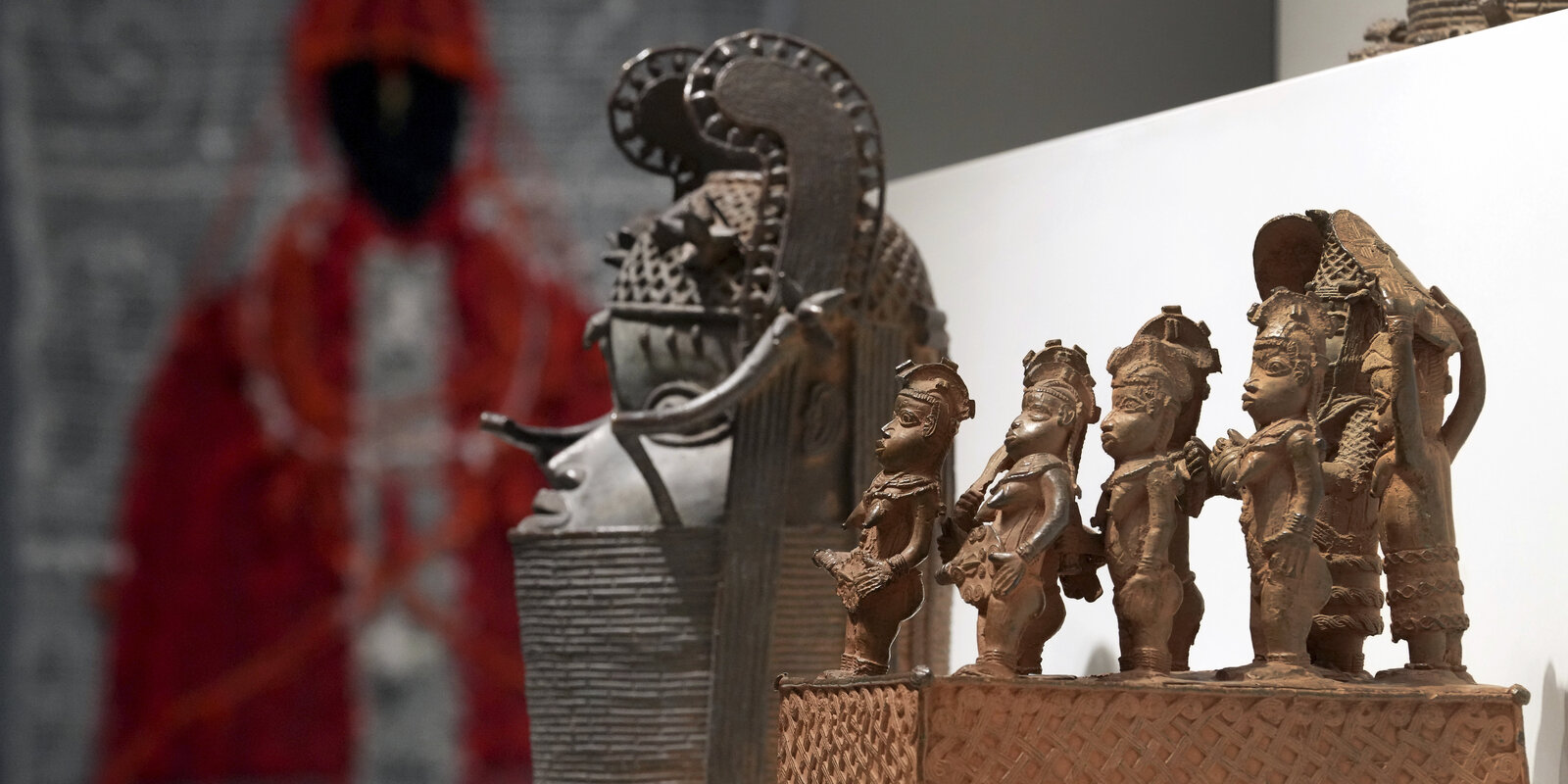In December, German Foreign Minister Annalena Baerbock had returned twenty of the so-called “Benin bronzes” to Nigeria, i.e. a small part of the statues and artifacts stolen by British troops in the colonial period as war loot, hundreds of which are exhibited in museums Germans. In total, over the course of a few years, Germany has returned to the Nigerian authorities 1,100 “bronzes” previously kept by German museums, becoming one of the most active European countries in the matter. Now, however, the return of the bronzes is at the center of a controversy carried on by the right-wing opposition, very critical of what the Nigerian government has decided to do with the returned works.
Germany returned the bronzes without placing any conditions on what would happen to them: according to Financial Times, he thought would remain in the hands of the Nigerian government and the country’s National Commission for Museums and Monuments. Instead, the Nigerian president Muhammadu Buhari issued a decree entrusting the bronzes to the Oba of the Kingdom of Benin, Ewuare II, recognizing him as “the original owner and custodian of the culture, heritage and tradition of the people of the kingdom of Benin” and granting him total ownership of all repatriated artifacts.
Founded in 1200 in southern Nigeria, the kingdom of Benin was one of the most powerful in West Africa for over seven hundred years: it was led by the Oba, comparable to the figure of the king in European kingdoms. The Benin Bronzes – which are actually made of various different materials – represent one of the greatest examples of the artistic style developed in the Kingdom of Benin, and are of immense historical and cultural value to the Edo people, still descendants of the inhabitants of that kingdom.
After a long period of commercial interference, the kingdom of Benin was invaded by the British army in 1897: the capital, Benin City, was set on fire, and the territory was annexed to the so-called “British Nigeria”. Even after Nigeria’s declaration of independence from the United Kingdom in 1960, the Kingdom of Benin did not revert to an independent state – Benin, a smaller country bordering Nigeria to the west, is not heir to the former kingdom – but the Oba continues to cover an institutional role, similar to that of government adviser, and is considered a representative of the Edo population in the country.
“The king should not be considered as a single person: he represents the culture and tradition of his people, he is an important spiritual leader and an identifying figure for an entire community,” he told the Financial Times Barbara Plankensteiner, director of the Museum am Rothenbaum in Hamburg and member of the Dialogue Group with Benin, an institution that brings together European museums and the Nigerian government to discuss the repatriation of works of art.
– Read also: Whose antiques are in museums?
Nonetheless, the announcement was interpreted by the German right as a failure by the government – led since 2021 by a centre-left coalition under Chancellor Olaf Scholz – as well as a demonstration of the fact that returning the works looted by the European powers in the colonial era is too great a risk for the conservation of the works themselves. According to Marc Jongen, parliamentarian of the far-right party Alternative Für Deutschland, “this story should be seen as a wake-up call that puts an end to the hyper-moralism inherent in the entire restitution debate”.
The criticisms of the opposition follow one of the main objections that have developed in recent years around the issue of restitution: that according to which one cannot be sure that the countries to which the works are returned – sometimes politically or economically unstable – are capable of take good care of them once you get them. The Nigerian government has strongly opposed this idea in recent years, calling it “archaic”. “The truth is that no argument can transform looted works into unlooted works or stolen works into unstolen works. There is simply no moral or legal basis for the willful holding of cultural property that has been looted during military expeditions or in unfair negotiations,” Nigerian official Aghatise Erediauwa said on the occasion of the museum’s return of dozens of Benin bronzes. Smithsonian in Washington DC last October.
The right-wing opposition points out that Germany has contributed about 5 million euros to the construction of a new museum in Benin City, the Edo Museum of West African Art, strongly supported by the governor of Edo state, Godwin Obaseki . Now, however, it is very probable that the works will be exhibited in another museum under construction, wanted however by the Oba, who is a political rival of Obaseki: the Royal Museum of Benin. “We have lost 5 million euros: money spent on a museum in Nigeria that will never see the treasures we have returned,” said Dorothee Bär, MP from the conservative CDU/CSU bloc. “The government has recklessly consigned Africa’s world heritage to oblivion. The works will vanish into the private collection of a Nigerian king.”
Christofer Burger, spokesman for the German Foreign Ministry, replied that “the sovereign state of Nigeria has the right to decide where the returned bronzes will be kept and how they will be made accessible to the Nigerian people”. “To imply that these bronzes will never be seen by the public again just because Nigeria and not Germany now control them demonstrates a mentality I wished we had abandoned,” he added.
